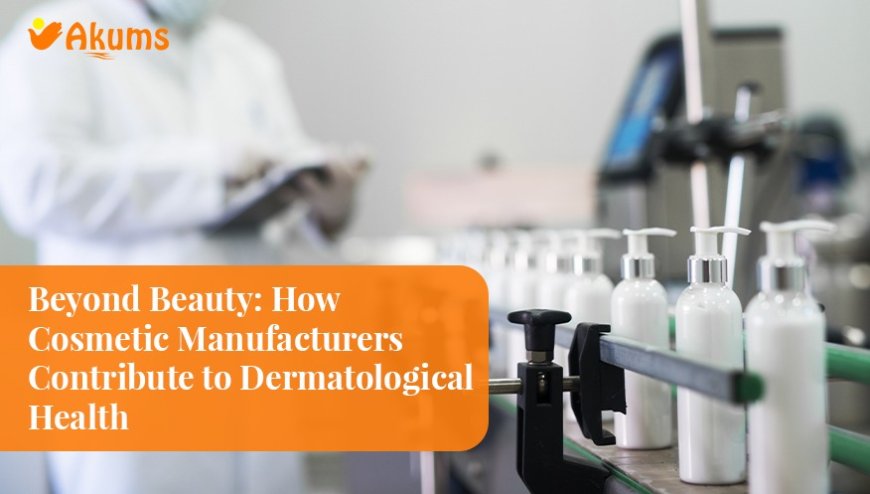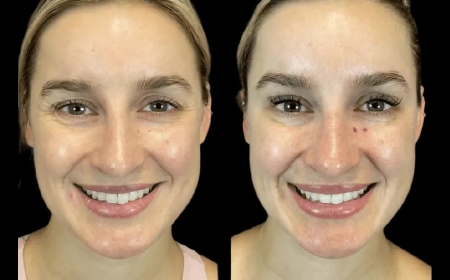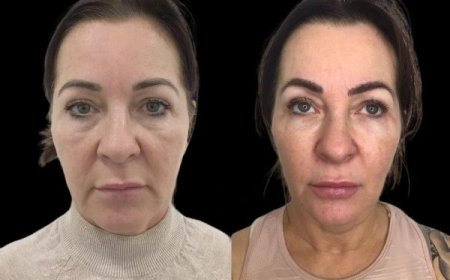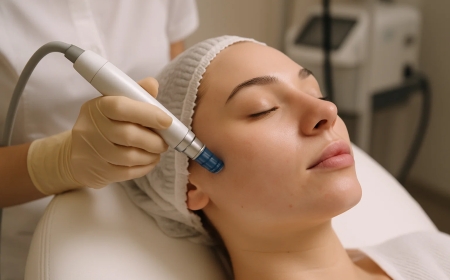Beyond Beauty: How Cosmetic Manufacturers Contribute to Dermatological Health
The role of cosmetic manufacturers is no longer limited to creating products for beauty; they are now vital contributors to skin health.

When people hear the word cosmetics, they think about beauty and style. Over time though cosmetic manufacturers have gone beyond just creating products to make people look attractive. These companies now take the lead in caring for skin by offering items that not only improve how someone looks but also help with skin health. This change has caused a fresh way of seeing skincare. Health and beauty are no longer treated as two separate things.
Merging Science and Skincare
Cosmetic manufacturers today are putting significant resources into dermatological research. Today's skincare is often clinical (backed by testing and research), supports active ingredients we once only found in pharmaceuticals including ceramides, peptides, retinoids, hyaluronic acidall ingredients that are not solely cosmetic anymore. All of these ingredients can offer benefits beyond the aesthetic by helping to repair the skin barrier and ameliorate inflammation, help to manage acne, and help to address skin issues such as rosacea or pigmentation.
Thanks to this science-backed approach, the lines between cosmetic and therapeutic products are blurring. While a moisturizer may have functioned just as a cosmetic product, today it may also provide an anti-inflammatory action or offer protection from external stressors. This indicates a shift in our understanding of skin, which has moved towards a more holistic perspective regarding the links between function and appearance.
Collaboration with Pharmaceutical Expertise
Behind this transformation is a quiet but impactful collaboration between cosmetic and pharmaceutical manufacturer in India industries. Cosmetic labs are increasingly adopting pharmaceutical standards, ensuring that their formulations meet stringent safety and efficacy benchmarks. Many products are now developed in consultation with dermatologists or under pharmaceutical-grade quality control systems.
This collaboration has led to a new generation of cosmeceuticalsproducts that sit between cosmetics and pharmaceuticals. While not classified as medicine, they offer therapeutic benefits, particularly for sensitive or problematic skin. These formulations often require precise dosing, proven ingredients, and a deep understanding of dermatological scienceareas where pharmaceutical expertise becomes invaluable.
Personalised Care for Long-Term Skin Health
Todays consumers are more informed and proactive about their skin. Cosmetic manufacturers are responding by developing personalised, skin-type-specific solutions that go beyond superficial beauty. Whether its anti-aging serums, SPF-rich day creams, or calming face masks for stressed skin, the focus has shifted toward prevention, protection, and long-term skin wellness.
Additionally, the accessibility of dermatologist-approved cosmetic products has made it easier for people to manage mild skin conditions without resorting to prescription medication. This democratization of skincarewhere high-performance, safe, and effective products are readily availableunderscores the positive impact cosmetic manufacturers are having on dermatological health.
Conclusion: A Future Rooted in Care
The role of cosmetic manufacturers is no longer limited to creating products for beauty; they are now vital contributors to skin health. By combining aesthetic appeal with therapeutic value, they are redefining the way we care for our skinoffering not just quick fixes but long-term, science-backed solutions. With continued innovation, and by aligning closely with pharmaceutical best practices, cosmetic manufacturers are well-positioned to support both dermatologists and everyday consumers in the shared goal of healthier, more resilient skin. This is beauty with purposewhere looking good begins with feeling good in your own skin.











































